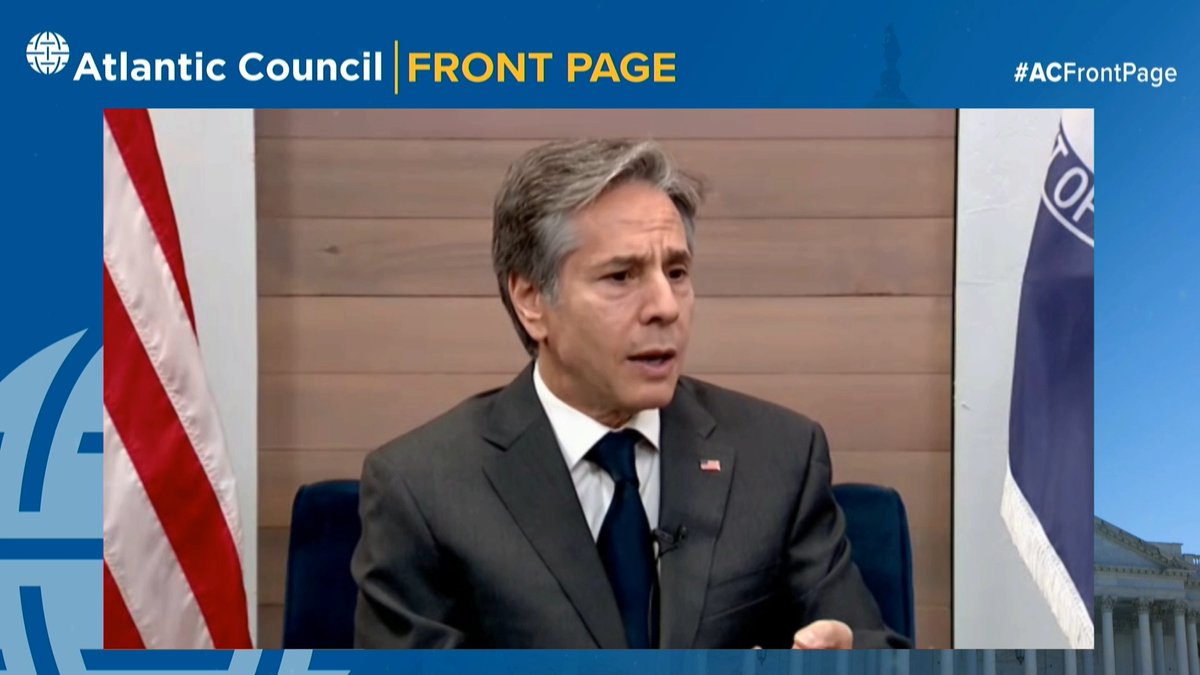TUNE IN for a LIVE #ACFrontPage event: @SecBlinken discusses the role of the US State Department in advancing LGBTQI equality at home and around the world with @CapehartJ pscp.tv/w/c59qPzFETEVC…
On #ACFrontPage, @SecBlinken tells @CapehartJ that there's still work to do at home and abroad to advance LGBTQI equality.
"One of our country's greatest strengths is our identity as a place where freedom, justice, and opportunity are available to everyone... when we fall short, the world notices." - @SecBlinken tells #ACFrontPage
@SecBlinken on Biden's moves to protect the human rights of LGBTQI people globally on #ACFrontPage:
"We have an obligation, a debt, to help those who helped us," said @SecBlinken on visas for people in Afghanistan who have helped the United States. Check out what else he said on #ACFrontPage:
How is the United States working with other countries to spotlight and advance the rights of LGBTQI people? @SecBlinken outlines how the State Department is integrating this work into their every day on #ACFrontPage:
On authorizing embassies to fly the pride flag: "The strength and the power of our own example... I think sends a usually important message." Plus on #ACFrontPage, @SecBlinken announces the State Department will fly the Progress flag:
Biden just returned from a diplomatic tour which included a meeting with Russian President Putin. Did he bring up the rights of LGBTQI people? Here's what @SecBlinken had to say on #ACFrontPage:
"The effectiveness, the impact, of our foreign policy is directly tied to our strength at home, and the power of our example... is as important as the example of our power" - @SecBlinken on #ACFrontPage:
What can the department do to ensure that the full spectrum of LGBTQI experiences is reflected at the highest levels? @SecBlinken talks representation at #ACFrontPage:
How can the US revitalize efforts to end violence and discrimination on the basis of sexual orientation or gender expression and identity across the world? It starts with putting human rights at the center of our foreign policy, says @SecBlinken on #ACFrontPage:
On the ground, the State Department is supporting programs that advance human rights for LGBTQI people, says @SecBlinken on #ACFrontPage: "We've got this effort ongoing in our programs, that are funded one way or another, and in our day-in, day-out diplomacy." 

On the ground, the State Department is supporting programs that advance human rights for LGBTQI people, says @SecBlinken on #ACFrontPage: "We've got this effort ongoing in our programs that are funded one way or another and in our day-in, day-out diplomacy."
"We have... an obligation to make sure that we're doing everything we can to advance human rights and democracy more broadly and to support and advance LGBTQ rights more specifically... it's the right thing to do; it's also the smart thing to do." - @SecBlinken on #ACFrontPage
• • •
Missing some Tweet in this thread? You can try to
force a refresh




